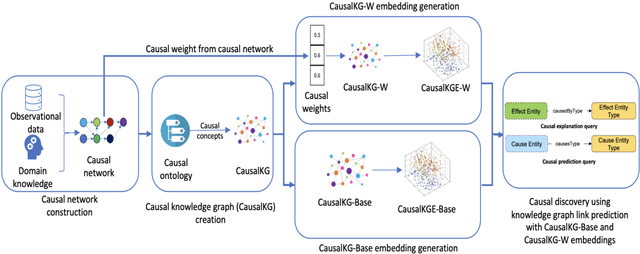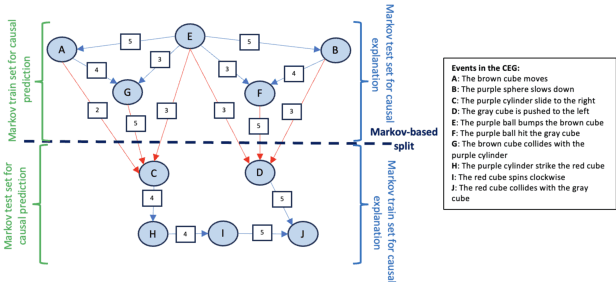CausalDisco: Causal discovery using knowledge graph link prediction
Paper and Code
Apr 23, 2024



Causal discovery is a process of discovering new causal relations from observational data. Traditional causal discovery methods often suffer from issues related to missing data To address these issues, this paper presents a novel approach called CausalDisco that formulates causal discovery as a knowledge graph completion problem. More specifically, the task of discovering causal relations is mapped to the task of knowledge graph link prediction. CausalDisco supports two types of discovery: causal explanation and causal prediction. The causal relations have weights representing the strength of the causal association between entities in the knowledge graph. An evaluation of this approach uses a benchmark dataset of simulated videos for causal reasoning, CLEVRER-Humans, and compares the performance of multiple knowledge graph embedding algorithms. In addition, two distinct dataset splitting approaches are utilized within the evaluation: (1) random-based split, which is the method typically used to evaluate link prediction algorithms, and (2) Markov-based split, a novel data split technique for evaluating link prediction that utilizes the Markovian property of the causal relation. Results show that using weighted causal relations improves causal discovery over the baseline without weighted relations.
 Add to Chrome
Add to Chrome Add to Firefox
Add to Firefox Add to Edge
Add to Edge